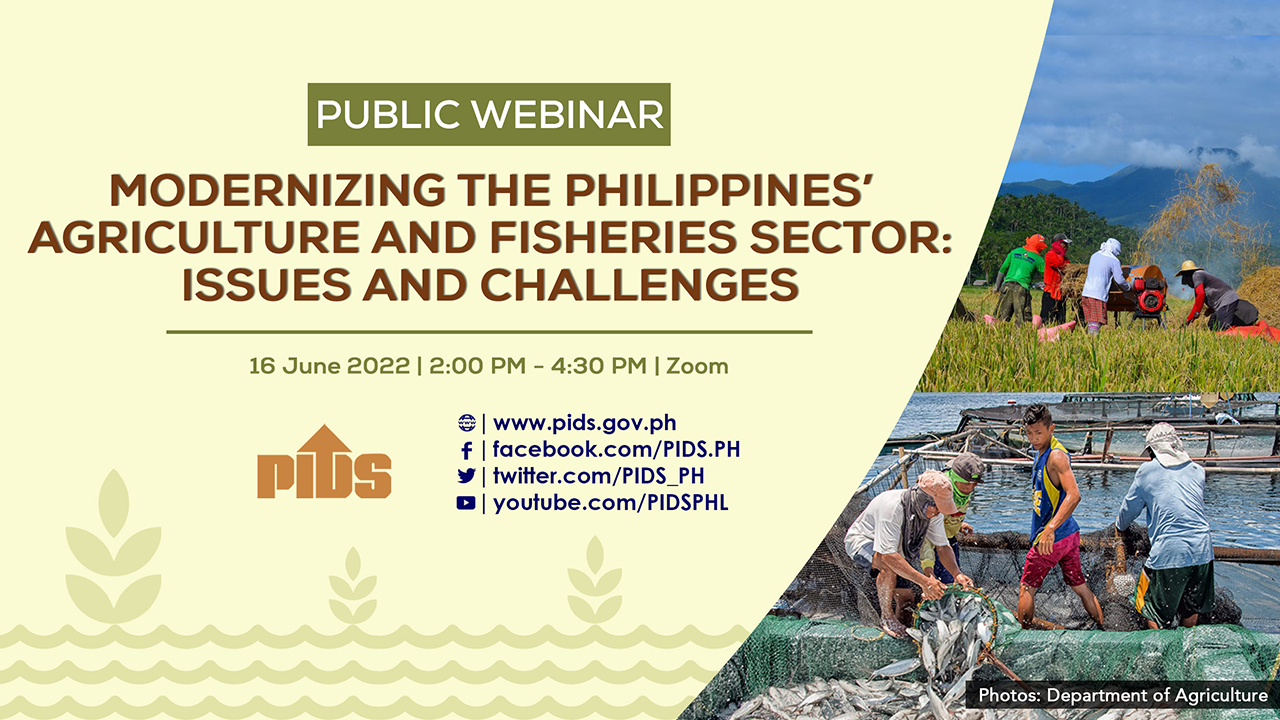SEVERAL economic experts are stressing the importance of improving the agricultural and fisheries sector to ensure Philippine post-pandemic recovery, noting that 25 years after the passage of the Agriculture and Fisheries Modernization Act (AFMA), the sector has progressed but has not been "modernized."
Philippine Institute for Development Studies (PIDS) senior research fellow Roehlano Briones said AFMA (Republic Act 8435) was considered a landmark law when it was enacted in 1997. However, Briones pointed out that based on the AFMA's objectives, the country still has not attained agricultural modernization as envisioned by this law.
"Progress has been made but the sector has not really modernized according to those objectives. And if things continue as it is, we will not see it being modernized even in the short to medium term, say, within this coming administration," Briones said, who presented his study findings in a recent PIDS webinar.
He noted that the sector's total factor productivity (TFP), a comprehensive measure of productivity, has shown that the sector's growth has ranged "from mediocre at best and negative at worst" from the 1960s to 2016.
Meanwhile, PIDS President Aniceto Orbeta Jr. said, "A productive and sustainable agricultural sector is essential in the post-pandemic recovery.... The improvement of the agricultural sector is a crucial factor in economic development, the attainment of sustainable economic goals, poverty and hunger alleviation, food security, and agricultural productivity enhancement."
Philippine Statistics Authority (PSA) statistics show that around 24.3 percent of the country's total employment in 2018, equivalent to more than 10 million Filipinos, was employed in agriculture.
"The latest PSA data also showed that farmers and fisherfolks have the highest poverty incidence among the basic sectors at around 31 percent and 26 percent, respectively," Orbeta said.
Department of Agriculture (DA) undersecretary for attached agencies Rodolfo Vicerra said that one way to fill the gaps in AFMA implementation is to organize the farmers and fisherfolk better.
"While farmers' and fishers' associations are plentiful, these are more like loose groupings where the discipline of managing their enterprise and their activity is not there," he said, highlighting that this is one area that has to be prioritized in future programs of the DA.







